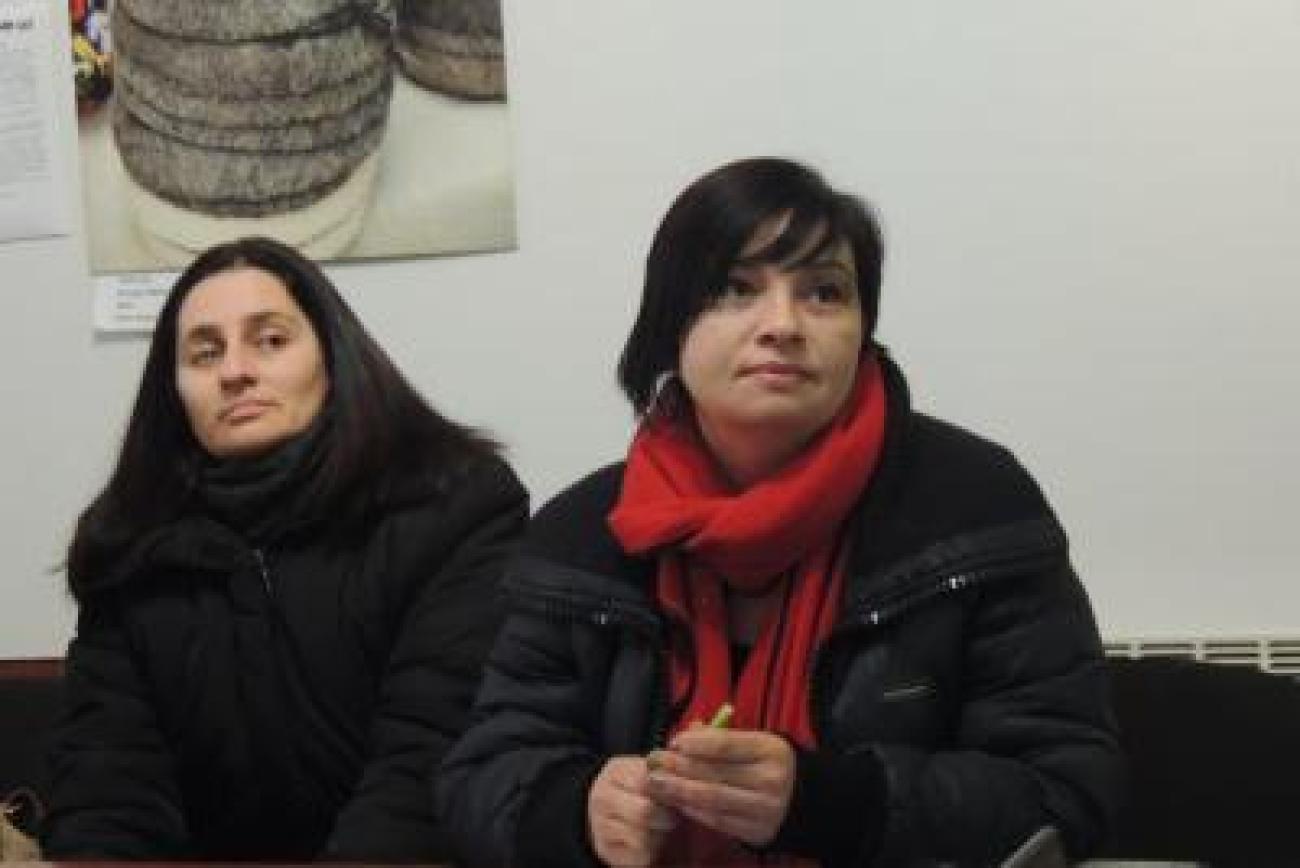“Oladi” (a type of pancake) is one of the most popular pastries in Georgia. It requires little time to prepare and is very tasty, which is why almost every family makes it quite often. The Kvitia sisters, Nona and Nana have been baking oladis since childhood. Later on, baking them became their first source of income.
In 1992, due to the armed conflict in Abkhazia, Nona and Nana, aged 11 and 9 at the time, had to leave their home and move from Ochamchire district to the village of Ingiri in western Georgia. They found shelter with their cousin Inga Chokoraia, whose home was shared with many other relatives displaced from Abkhazia. Facing financial hardships, the three cousins came up with the idea of baking and selling oladis. Nona Kvitia recalls:
“We were too young, but we started up our business out of necessity. First we left the baked goods with our acquaintances to sell in the marketplace. We were avoiding people and did not want to be seen. Eventually, we realized that the oladis were very popular. We became famous, and started selling to shops. After some time, we got active in other fields of work but would always go back to baking when we needed to.”
Today, Nona and Nana Kvitias are neighbors in one of the settlements of internally displaced persons (IDPs) in Ingiri, where approximately 2,000 IDP households displaced from Abkhazia live. Most of the residents are engaged in seasonal work – in the hazelnut factories, picking citrus and corn, as well as in seasonal trade. Nona and Nana are supporting their children on their own, and together the three women have taken on an exciting new challenge to support their families; they are opening a bakery, to turn what they started years ago into a profitable business.
Inga learned about the project “Equal Access of IDPs to Economic Opportunities” funded by the European Union and implemented by UN Women and the Food and Agriculture Organization of the United Nations (FAO). By promoting access to livelihood opportunities, the project aims to achieve economic empowerment of the most vulnerable groups of IDPs in Georgia.
Supporting the development of livelihoods of poor and vulnerable groups, including IDPs, is of paramount importance for the just and sustainable development of communities and societies. Poverty reduction, socio-economic development and the achievement of gender equality are inseparable elements of the United Nations’ Sustainable Development Agenda, Georgia’s national development priorities and European Union aspirations. The current European Union funded initiative is part of the wider IDP IV Programme, under which the EU Delegation to Georgia and the Ministry of Internally Displaced Persons from the Occupied Territories, Refugees and Accommodation (MRA) are supporting the socioeconomic integration of IDPs and conflict-affected persons. The initiative has already reached out to more than 2,000 IDPs through field visits, social mobilization and capacity development interventions, and provided free legal consultations to 3,600 IDPs since February 2016. It is expected that by end of 2017, at least 700 vulnerable IDP families will have received co-investments for implementing livelihoods projects.
Inga, Nona and Nana has received support from the project to establish a bakery. They plan to set it up in Inga’s house and use the co-investment funds to purchase equipment. Their products will include an assortment of pastries, pies and rolls with jam, and they are confident that they will be able to sell their products both in stores and in the marketplace. Nona comments that:
“I am unemployed and supporting my child alone. We really want to make this bakery a success.This opportunity was a push for us to take the step and realize our childhood business idea. The co-investment we received is of great support, and it also places more responsibility on us. We want to positively surprise our community and demonstrate that the financial contribution we received was a good investment.”
Inga continues: “If our bakery expands, we will employ others too, and we really want to teach other IDP women how to bake, pro bono. The fact that we received funding is an incentive for others. They call us “smart women” and if we are successful, others will be even more inspired.”




